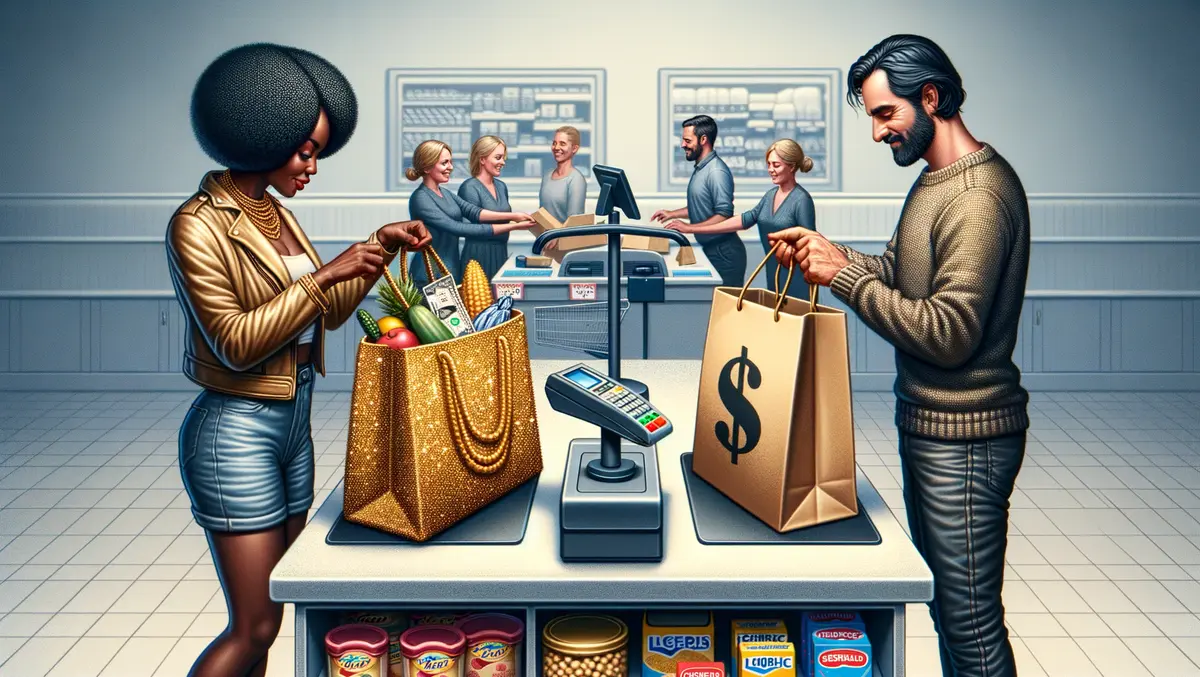
UK consumers prioritising price over brand loyalty
Price is now the leading factor governing UK consumer brand loyalty according to a report from Fortune 500 company ServiceNow. The 2024 Consumer Voice Report: Tackling the Brand Crisis reveals 67% of consumers are less brand loyal than two years ago and 33% now prioritise the cheapest option over brand loyalty. However, the importance of sustainability remains high with 70% of respondents stating it's a key purchase factor. Moreover, 40% of consumers revealed they are uneasy dealing solely with AI customer service to protect employment.
The analysis uncovers two-fifths (39%) of British consumers are spending more than they did 24 months ago due primarily to rising costs, cited by 77% as the dominant causative factor. AI mistrust (36%), security concerns (12%) and concerns about human job replacement (40%) are catalysts pushing consumers towards human interaction. Furthermore, the research identifies a growing expectation of a shift towards 24/7 customer service with 39% of respondents expecting this change within the next year, and 61% anticipate the integration of Virtual Reality (VR) for 'try before you buy' experiences by 2030.
The CEO of The Institute of Customer Service commented on the findings, indicating that cost of living pressures and evolving customer expectations are the primary factors undermining brand loyalty. The report also highlights that businesses must now integrate innovative technology into their operations to balance traditional and technologically advanced customer interactions during challenging times.
The report states that whilst 64% never want to see customer service completely driven by AI, UK consumers are receptive to the introduction of emerging technologies. Notably, 21% prefer chatbots for basic information whereas 38% prefer human interaction for more complex issues. The coexistence of technologically enhanced but human-driven customer experience would seem to present an optimal solution in current circumstances. By 2030, it is anticipated that 61% of customers will expect the integration of VR for 'try before you buy' experiences.
Customers are demonstrating an appetite for round-the-clock customer service with 39% expecting the shift to 24/7 Customer Experience (CX) in the next 12 months. Alongside this, an astonishing 93% of UK customers value rapid customer service response times. This, therefore, presents an opportunity for businesses to invest in fast, intelligent technologies to future-proof the customer experience.
Interestingly, 48% of customers wouldn't use social media for their customer experience. This data suggests businesses needing to demonstrate ROI must redeploy their social media budgets to align with changing CX demands. Thus, the future of customer experience seems to favor a blend of digital and personal interaction, merging automated and human-operated services to heighten the customer experience. Success in this new landscape will require businesses to adopt a hybrid customer experience strategy since neither an entirely automated nor wholly human-driven approach alone meets growing consumer expectations.
Jo Causon, CEO of The Institute of Customer Service, stated, "67% of UK consumers are less loyal to brands now than they were two years ago. This coincides with our UK Customer Satisfaction Index (UKCSI), showing a record fall in satisfaction in January 2024. Whilst ServiceNow's report also suggests cost-of-living challenges are prompting some customers to switch to lower-cost options that don't offer a consistent service experience, businesses are less likely to retain new customers who may initially be tempted toswitch supplier in an effort to save money."


